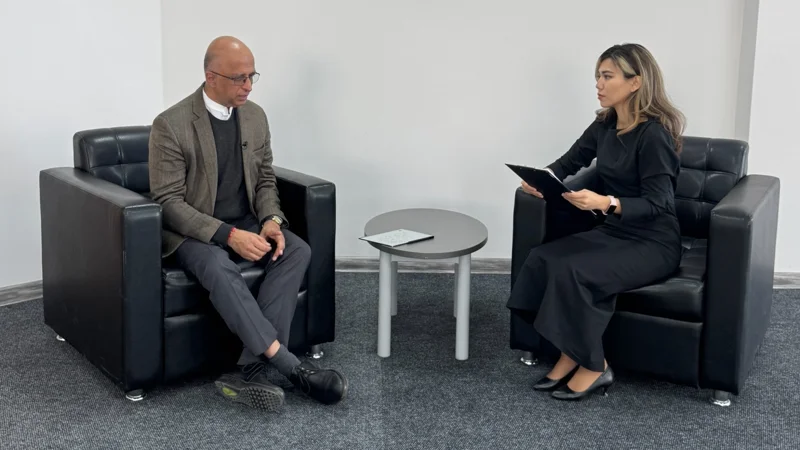The whole world is one family: Interview with Mr. Samir Somaiya, Chairman of Hinduism
The capital of Kazakhstan is once again hosting the Congress of Leaders of World and Traditional Religions. Among its distinguished guests was Mr. Samir Somaiya Shantilal, Chairman of Hinduism, public figure, and long-time advocate for interfaith dialogue.

In an interview with Kazinform News Agency’s correspondent, he shared his views on the role of religion in today’s world, the uniqueness of the Kazakhstani forum, and his personal sources of spiritual inspiration.
— Mr. Samir Somaiya, you have come to Astana to take part in the Congress of Leaders of World and Traditional Religions. How do you assess the role of this platform in strengthening dialogue between different religions?
It is a wonderful platform. I have been coming here since 2010, and this is my fifth visit. It feels like returning home to a community where interfaith dialogue is at the center.
Its importance is twofold. First, it reflects the commitment of the political leadership, sending a message of harmony and dialogue to society. Second, it gathers people of different religions from around the world to engage directly. Because this forum is held regularly, the dialogue is sustained.
— In your opinion, what makes the Kazakhstani forum unique?
Kazakhstan stands out through the firm commitment of its leadership to convene this dialogue every three years and to invite representatives of diverse traditions.
The discussions often address global challenges such as the environment, with spiritual leaders actively engaging. This makes Kazakhstan’s initiative unique.
— Kazakhstan and India are historically connected through cultural and spiritual traditions. What new forms of cooperation could develop in the future?
We have an ancient civilizational connection. Before coming here, I visited your museum and learned about the Sakha community, which migrated to Northern India and founded the Shaka Kingdom. The Silk Route also passed through this region. These ancient links remain alive today.
Looking to the future, Asia’s narrative is one of youth, aspiration, growth, and change. Over 15 years of visiting Astana, I have seen the city transform into a modern metropolis while preserving its traditions. The same is true for Mumbai.
We must strengthen ties at economic, cultural, political, and spiritual levels. Such dialogue helps us dream of a new future for our countries, for Asia, and for the world.
— In today’s digital era, especially in the age of artificial intelligence technologies, how can religious traditions remain relevant for young people?
Religion has always been part of human society. Technologies change, but religion preserves timeless truths that must be passed on from one generation to the next.
Leaders must use technology as a tool for education and spiritual development. The new generation should be competent in their careers, yet also broad-minded and strong in integrity.
Swami Vivekananda once said that education should form character, strengthen the mind, expand intellect, and enable independence. This is the kind of person we need to nurture.
Artificial intelligence is a new tool that we must learn to use, while also ensuring we build communities of character and wisdom.
— Conflicts and crises continue to affect different parts of the world. From your perspective, what role can religious leaders play in promoting peace?
All religions teach compassion, forgiveness, and kindness. We must think about justice and a better world for all.
A beautiful verse in our scriptures says: Vasudhaiva Kutumbakam – “the whole world is one family.” This planet and future are shared. As in families, disagreements may arise, but it remains our only home.
We must dream of leaving the next generation a more just, kind, compassionate, and beautiful world. Spiritual leaders should draw on their traditions to deliver this message to their communities and to the world.
— On a personal note, what inspires you most in your spiritual journey and mission?
I grew up learning from my parents and grandparents. My grandfather followed Mahatma Gandhi, who showed that social and political change could be achieved through ahimsa – non-violence.
Gandhi drew inspiration from Hinduism as well as from other world traditions. I also take inspiration from Hindu scriptures, while respecting all religions.
Gandhi changed the world, and his example remains timeless.
— Finally, what message would you like to leave for our readers?
Let me quote a Sanskrit verse: “May all be happy. May all be free of disease. May none see evil. May all be free of suffering.”
This is my wish for the world.

